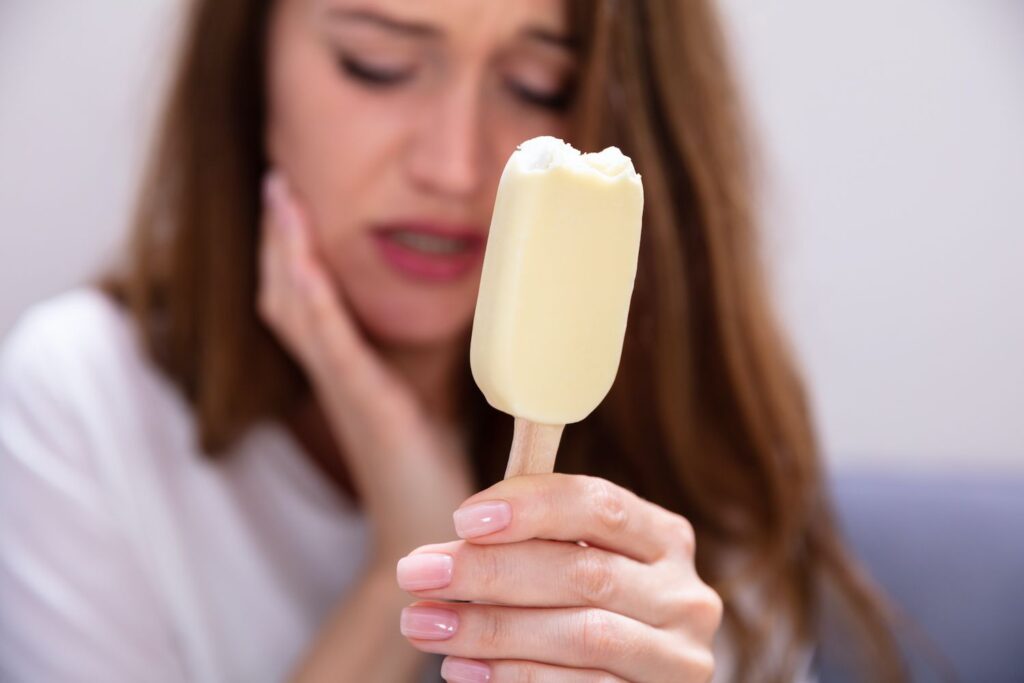Have you ever bitten into ice cream and felt a jolt of pain in your tooth? This intermittent yet excruciating sensation could be tooth sensitivity. The condition can point to major damage in your teeth that will need urgent attention from a dentist to amend.
Do not hesitate to call your dentist about this issue because tooth pain of any kind is abnormal and could signify a larger dental problem. Tooth sensitivity is caused by a number of reasons, and your dentist can evaluate your smile to find and treat the issue accordingly. Read on to see responses from your dentist to frequently asked questions regarding tooth sensitivity symptoms.

Why Do I Feel Tooth Sensitivity Pain?
A healthy tooth features an outer layer called enamel that shields the interior layer of the tooth, dentin. Though durable, enamel may erode over time, leaving the dentin exposed. Dentin contains nerves that will send pain signals to the brain if stimulated.
So if enamel wears down, external stimuli can touch these nerves in dentin and leave with tooth sensitivity pain. Enamel cannot regrow, so this type of dental damage is permanent.
Enamel can erode due to poor oral habits, or it could be a symptom of another dental problem like a cavity. Consult your dentist to learn more about the causation of this symptom.
How Can My Dentist Treat Tooth Sensitivity?
Treatment for tooth sensitivity will depend on the severity and cause of your dental damage. Mild cases of enamel erosion with tooth sensitivity might be resolved by using a desensitizing toothpaste. This product features ingredients that will block the nerves in exposed dentin so that you will not feel pain when stimulated anymore.
Enamel will not regenerate, but your dentist can use restorative dental tools to replace it. They can cover the damaged tooth with a dental crown. This ceramic cap will replace lost enamel, providing protection over dentin again and stopping sensitivity pain.
A cavity can create enamel damage that leads to tooth sensitivity too. If this or another dental problem causes this symptom, your dentist will treat the issue. Once a cavity is gone, tooth sensitivity should stop as well.
Can I Prevent Tooth Enamel Erosion?
You can preserve your tooth enamel and dental structure with healthy oral habits. This includes practicing good oral hygiene, which removes plaque and other harmful residues from your teeth before they can eat away at your teeth. Brush your teeth at least twice a day, floss daily, and visit your dentist for routine teeth cleanings to maximize preventative dental care.
Your diet can also impact your dental structure. Steer clear of acidic and sugary foods and drinks because they can erode your enamel over time. You can also drink plenty of water to avoid dry mouth.
Dry mouth will allow bacteria to spread throughout your mouth, risking gum disease, cavities, and more. Drinking water will also boost your oral hygiene by rinsing away residues between your teeth-brushing regimens.
